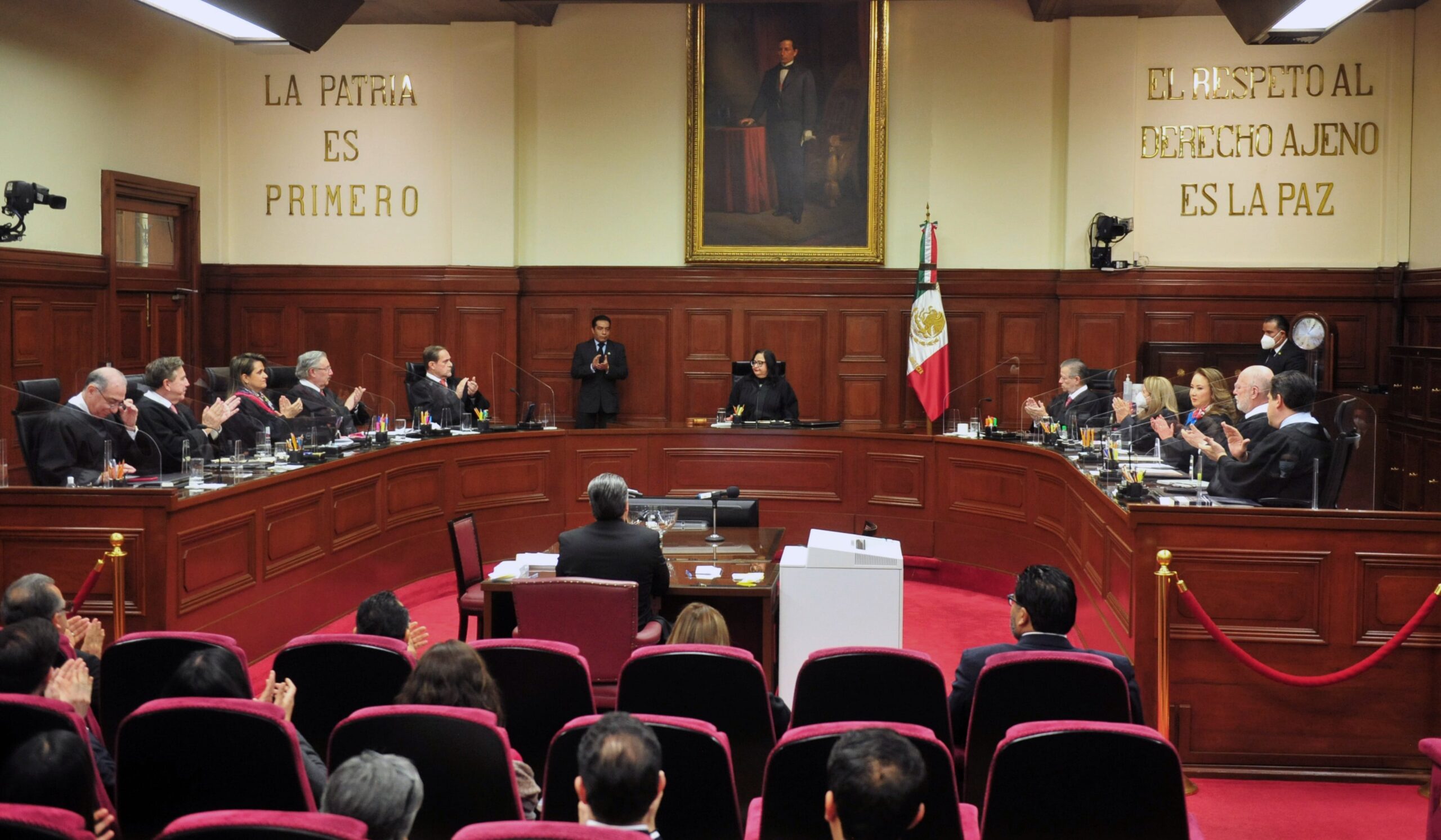Mexico City, Mexico — Mexico’s Judiciary on Wednesday went on strike to protest President Andrés Manuel López Obrador’s upcoming judicial reform, with all federal courts and tribunals closing indefinitely.
Judges, magistrates, and related workers denounced what they consider a reform that threatens judicial independence and the rights of the Mexican people as the president and his ruling MORENA party are set to fast-track the bill in the upcoming weeks.
On August 19, the Association of Federal Judges (Jufed) convened an internal meeting to determine whether to carry out the strike. According to a press release, out of 1,403 judges, 1,202 voted “yes” to suspend jurisdictional activities, and 201 voted “no.”
“This decision is of vital importance in the defense of the autonomy of the Federal Judiciary, a pillar of our democratic system,” read the statement.
The reform that intends to elect judges and ministers by popular vote, among other changes, has been strongly criticized by experts, who have described it as authoritarian.
Since August 19, around 55,000 judicial branch workers nationwide have begun work stoppages. As of midnight August 21, the rest of the judiciary joined the strike.
On August 20, President López Obrador dismissed the strike and welcomed it, as it could prove beneficial to his administration.
“Most Mexicans are not going to care. I would tell them, with all frankness and respect, that it will even help us if there are no judges, no magistrates, no active ministers; we have at least the guarantee that they are not going to let criminals of organized crime go free,” he said.
The president has strongly contested that the judiciary is in urgent need of his reform, which would cleanse the body of corruption.
However, some critics have claimed that the reform is an attempt by the president to co-opt the judiciary, which has been one of the last remaining checks against his power and that of the ruling party.
López Obrador enjoyed a close and amicable relationship with the judiciary when MORENA loyalist Arturo Zaldivar served as president of the Supreme Court. The relationship was strongly criticized by political opponents who claimed Zaldivar had bent the judiciary to AMLO’s wishes.
López Obrador himself claimed on more than one occasion that he asked Zaldivar to influence other justices in some instances.
By January 2023, AMLO faced a major counterbalance when Justice Norma Piña was elected as president of the Supreme Court. Since then, the judiciary has repelled some of the president’s initiatives, such as the adhesion of the National Guard to the Army, which they called unconstitutional and was seen as a big political loss for AMLO and his party.
Since then, the president has promised radical reform in order to democratize the judiciary, which he claims is currently undertaken by corrupted elites.
“In particular, they do not want the reform of the judicial power to be carried out because it is a power taken hostage at the service of a rapacious minority of a mafia, not only of organized crime but fundamentally a mafia of the potentates of those who felt they were the owners of Mexico,” said AMLO.
During the strike, the judiciary will only hear cases that are determined as “urgent,” such as cases of people recently detained by the military, human rights, violence against women, or instances involving danger to life or integrity of persons.







